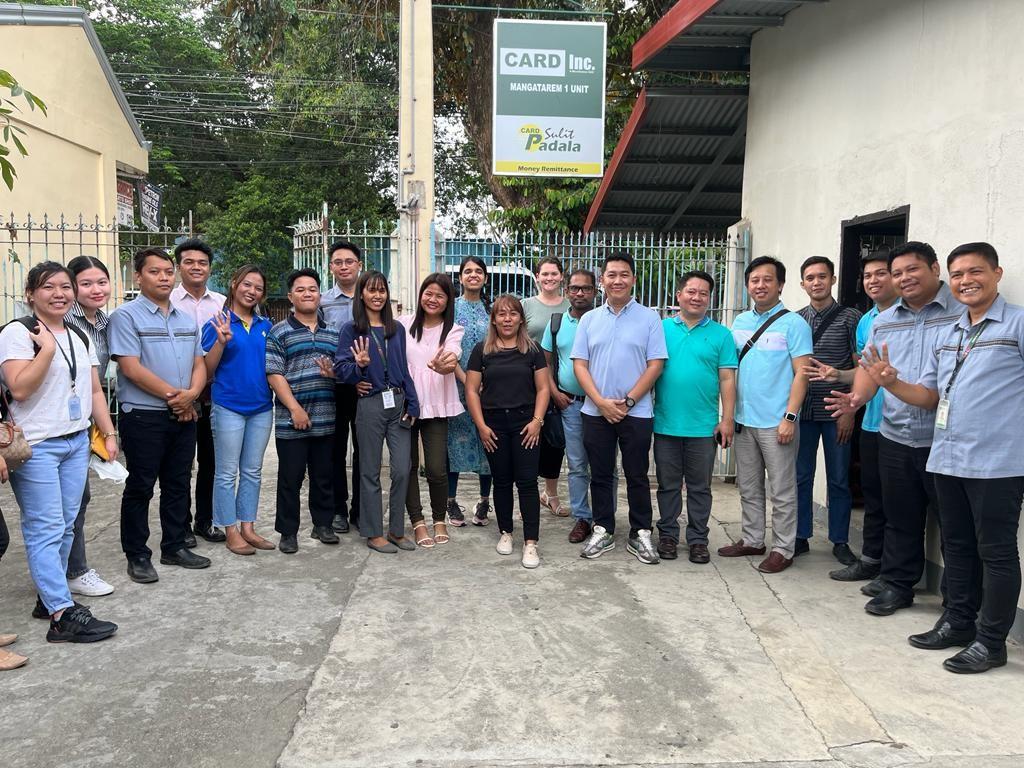Analysis and Next Steps: Climate Insurance and Food Security in the Philippines

In 2014, GIIF started supporting CARD-Pioneer Microinsurance Inc (CPMI), a joint venture between CARD MRI and Pioneer Insurance in the Philippines, in developing, pricing and deployment of the country’s first private-sector led crop insurance product, named Binhi (“seed”). The goal with the project was to bring in technical support through actuarial experts from IFC, to analyze historical agricultural damage and weather data, to develop a risk-pricing system that would ultimately allow CPMI to strategically manage its typhoon risks and set a sustainable price for its customers.
The agribusiness sector employs close to one third of the country’s workforce and it is highly vulnerable to climate risks; the country experiences multiple typhoons a year and it is ranked among the world’s highest disaster-prone countries. The project, also supported by the Government of Australia later during implementation, aimed to address these typhoon-related risks faced by lenders and farmers. Following its completion in 2022, the team decided to conduct an analysis to assess the effects of the project on end-beneficiaries, the broader market for agricultural insurance and the potential for future sustainability of this business line in the country.
For this analysis, the project team met with clients, farmers, agri-insurance stakeholders and practitioners to reach the following findings and recommendations:
• The agri insurance industry in the Philippines remains under-developed, with smallholder farmers being amongst the most vulnerable to changing climatic conditions.
• At the end of the project in 2022, more than 34,000 farmers in 12 provinces have purchased the product, often packaged with loans. Farmers reported increasing frequency of typhoons, heavy rains and floods, along with drought and pest and disease outbreaks. CPMI’s Binhi agri insurance enables farmers to have confidence and control, with payouts going directly to the farmer.
• To build actuarial and agri insurance product design capacity and exposure, IFC has supported the main client, CPMI, with workshops and learning trips to Africa and Indonesia to learn from other countries’ experiences and agri insurance operations in action.
• The first Soil Moisture Index in the country, developed through this Project, was approved by the Insurance Commission in May 2023 and it may be bundled with the typhoon cover.
• In terms of interest from general insurers in the country, the analysis highlights that there is strong interest from insurers and industry organizations to hear about CPMI’s experiences, in particular on issues related to loss ratios, costs associated with marketing, sales and claims settlement. Their focus is to assess the attractiveness of agriculture insurance business line.
For next steps, the goal is to build on the strong foundation developed through the project, to further strengthen these initial market building efforts and help with scale up, therefore, to decide on the proper vehicle to continue to provide strategic technical support to CPMI and the agri insurance industry. Some recommendations include:
• Collaboration with the public sector on developing policy wordings for general agri covers (index and indemnity) for drought, typhoon and other common risks to be approved by the regulatory agency;
• Support towards accessing remote sensing data;
• Guidance on best practices from other geographies;
• In collaboration with other IFC units, continued capacity building support
• Conducting diagnostics and scoping exercises to assess market size and the specific needs of SMEs and agribusinesses in the country.
We are grateful to our colleagues’ efforts in conducting this analysis and sharing their input for this piece. We would also like to thank government counterparts, private sector representatives and civil society leaders who generously shared their time and insights with our team in this exercise.
